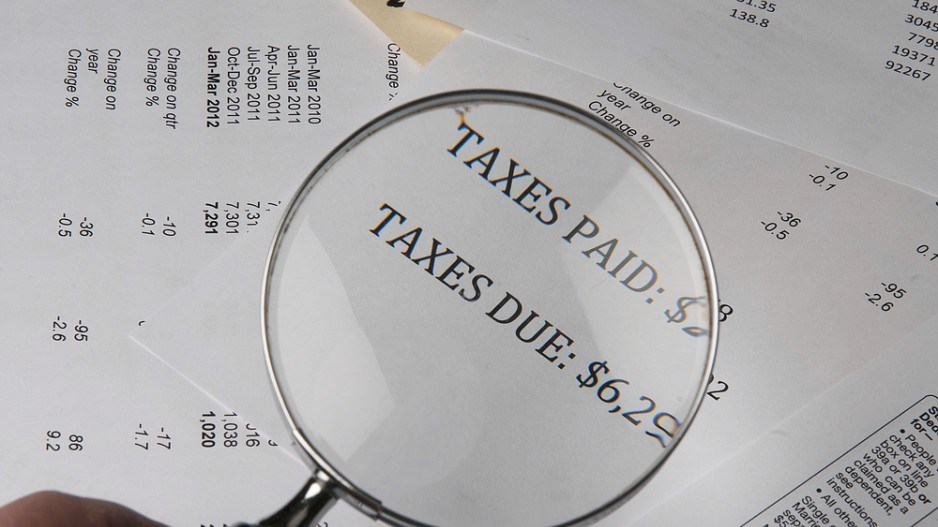BC business leaders believe that levying higher taxes on the wealthy is the best way for governments to reduce deficits and debt, according to the 2012 fourth-quarter Business in Vancouver business outlook survey.
In addition to questioning respondents about confidence in their businesses and industry sectors, the survey of 147 B.C. business leaders conducted by Ipsos Reid between November 19 and 29 gathered input on both the U.S. presidential election and how effectively governments are controlling deficits and debt.
When respondents were asked what actions they would like to see governments take to control deficit spending and accumulated debt, 63% said they wanted to see taxes hiked on the wealthy.
"It's socialistic to say raise the taxes on the wealthy, so it's interesting given that a lot of the people being surveyed would fall into that [wealthy] category," said Dave Pierzchala, senior vice-president and managing director at Ipsos Reid West.
The survey did not detail what threshold the executives considered wealthy. The next most popular strategies for deficit and debt reduction were:
•reduce public sector workers' salaries and benefits (49%);
•lower taxes on small businesses (44%); and
•raise taxes on corporations (36%).
The surveyed executives were largely ambivalent about the impact of the U.S. federal election on their sectors, with 58% believing the outcome was unimportant.
Of those who thought the outcome had an impact on their industries, 28% believed it was positive; 11% believed it was negative.
"They know what [U.S. President Barack Obama] stands for," Pierzchala said. "They've had four years to get used to what his policies might be." •
An Ipsos Reid survey for Business in Vancouver reveals that B.C. business leaders are increasingly pessimistic about future sales and profit in their businesses and in those of their direct competitors.
They're similarly less confident about the likelihood that they'll hire new staff, make new capital expenditures in their businesses or move to a larger space.
In some of the categories the confidence level has dropped in steps each quarter since the start of 2012.
In 2011's fourth quarter about 50% of B.C. business leaders surveyed predicted that their sales over the coming year would rise. That jumped to 57% in 2012's first quarter but then dropped to 55% in the year's second quarter and 50% in 2012's third quarter. It now stands at 47% in the latest Ipsos-BIV survey, which was conducted in November.
"The sales numbers are probably the most concerning because they started off the year at a high water mark," said Dave Pierzchala, senior vice-president and managing director at Ipsos Reid West.
"A similar trend is there in regard to profit."
In 2012's second quarter, 49% of business executives predicted that their profit would be higher over the next 12 months. That number dropped to 44% in 2012's third quarter and now sits at 38% in the current survey – the lowest percentage since BIV started conducting business confidence surveys with Ipsos in 2010.
Similarly, in 2012's second quarter, 37% of executives expected to hire new staff in the next 12 months. That percentage fell to 27% in the most recent survey.




